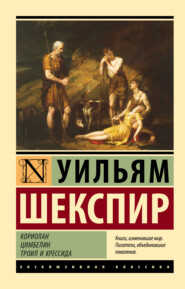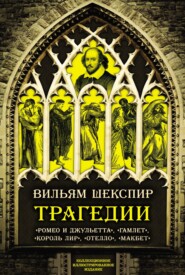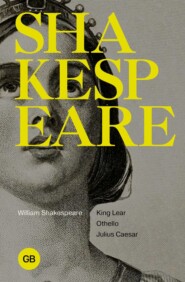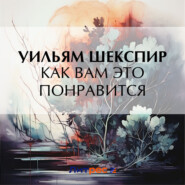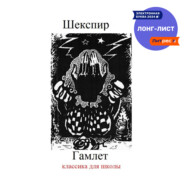По всем вопросам обращайтесь на: info@litportal.ru
(©) 2003-2025.
✖
Romeo and Juliet / Ромео и Джульетта
Настройки чтения
Размер шрифта
Высота строк
Поля
In penalty alike; and ’tis not hard, I think,
For men so old as we to keep the peace.
Paris
Of honourable reckoning are you both,
And pity ’tis you liv’d at odds so long.
But now my lord, what say you to my suit?
Capulet
But saying o’er what I have said before.
My child is yet a stranger in the world,
She hath not seen the change of fourteen years;
Let two more summers wither in their pride
Ere we may think her ripe to be a bride.
Paris
Younger than she are happy mothers made.
Capulet
And too soon marr’d are those so early made.
The earth hath swallowed all my hopes but she,
She is the hopeful lady of my earth:
But woo her, gentle Paris, get her heart,
My will to her consent is but a part;
And she agree, within her scope of choice
Lies my consent and fair according voice.
This night I hold an old accustom’d feast,
Whereto I have invited many a guest,
Such as I love, and you among the store,
One more, most welcome, makes my number more.
At my poor house look to behold this night
Earth-treading stars that make dark heaven light:
Such comfort as do lusty young men feel
When well apparell’d April on the heel
Of limping winter treads, even such delight
Among fresh female buds shall you this night
Inherit at my house. Hear all, all see,
And like her most whose merit most shall be:
Which, on more view of many, mine, being one,
May stand in number, though in reckoning none.
Come, go with me. Go, sirrah, trudge about
Through fair Verona; find those persons out
Whose names are written there, [gives a paper] and to them say,
My house and welcome on their pleasure stay.
[Exeunt Capulet and Paris]
Servant
Find them out whose names are written here! It is written that the shoemaker should meddle with his yard and the tailor with his last, the fisher with his pencil, and the painter with his nets; but I am sent to find those persons whose names are here writ, and can never find what names the writing person hath here writ. I must to the learned. In good time!
Enter Benvolio and Romeo
Benvolio
Tut, man, one fire burns out another’s burning,
One pain is lessen’d by another’s anguish;
Turn giddy, and be holp by backward turning;
One desperate grief cures with another’s languish:
Take thou some new infection to thy eye,
For men so old as we to keep the peace.
Paris
Of honourable reckoning are you both,
And pity ’tis you liv’d at odds so long.
But now my lord, what say you to my suit?
Capulet
But saying o’er what I have said before.
My child is yet a stranger in the world,
She hath not seen the change of fourteen years;
Let two more summers wither in their pride
Ere we may think her ripe to be a bride.
Paris
Younger than she are happy mothers made.
Capulet
And too soon marr’d are those so early made.
The earth hath swallowed all my hopes but she,
She is the hopeful lady of my earth:
But woo her, gentle Paris, get her heart,
My will to her consent is but a part;
And she agree, within her scope of choice
Lies my consent and fair according voice.
This night I hold an old accustom’d feast,
Whereto I have invited many a guest,
Such as I love, and you among the store,
One more, most welcome, makes my number more.
At my poor house look to behold this night
Earth-treading stars that make dark heaven light:
Such comfort as do lusty young men feel
When well apparell’d April on the heel
Of limping winter treads, even such delight
Among fresh female buds shall you this night
Inherit at my house. Hear all, all see,
And like her most whose merit most shall be:
Which, on more view of many, mine, being one,
May stand in number, though in reckoning none.
Come, go with me. Go, sirrah, trudge about
Through fair Verona; find those persons out
Whose names are written there, [gives a paper] and to them say,
My house and welcome on their pleasure stay.
[Exeunt Capulet and Paris]
Servant
Find them out whose names are written here! It is written that the shoemaker should meddle with his yard and the tailor with his last, the fisher with his pencil, and the painter with his nets; but I am sent to find those persons whose names are here writ, and can never find what names the writing person hath here writ. I must to the learned. In good time!
Enter Benvolio and Romeo
Benvolio
Tut, man, one fire burns out another’s burning,
One pain is lessen’d by another’s anguish;
Turn giddy, and be holp by backward turning;
One desperate grief cures with another’s languish:
Take thou some new infection to thy eye,






